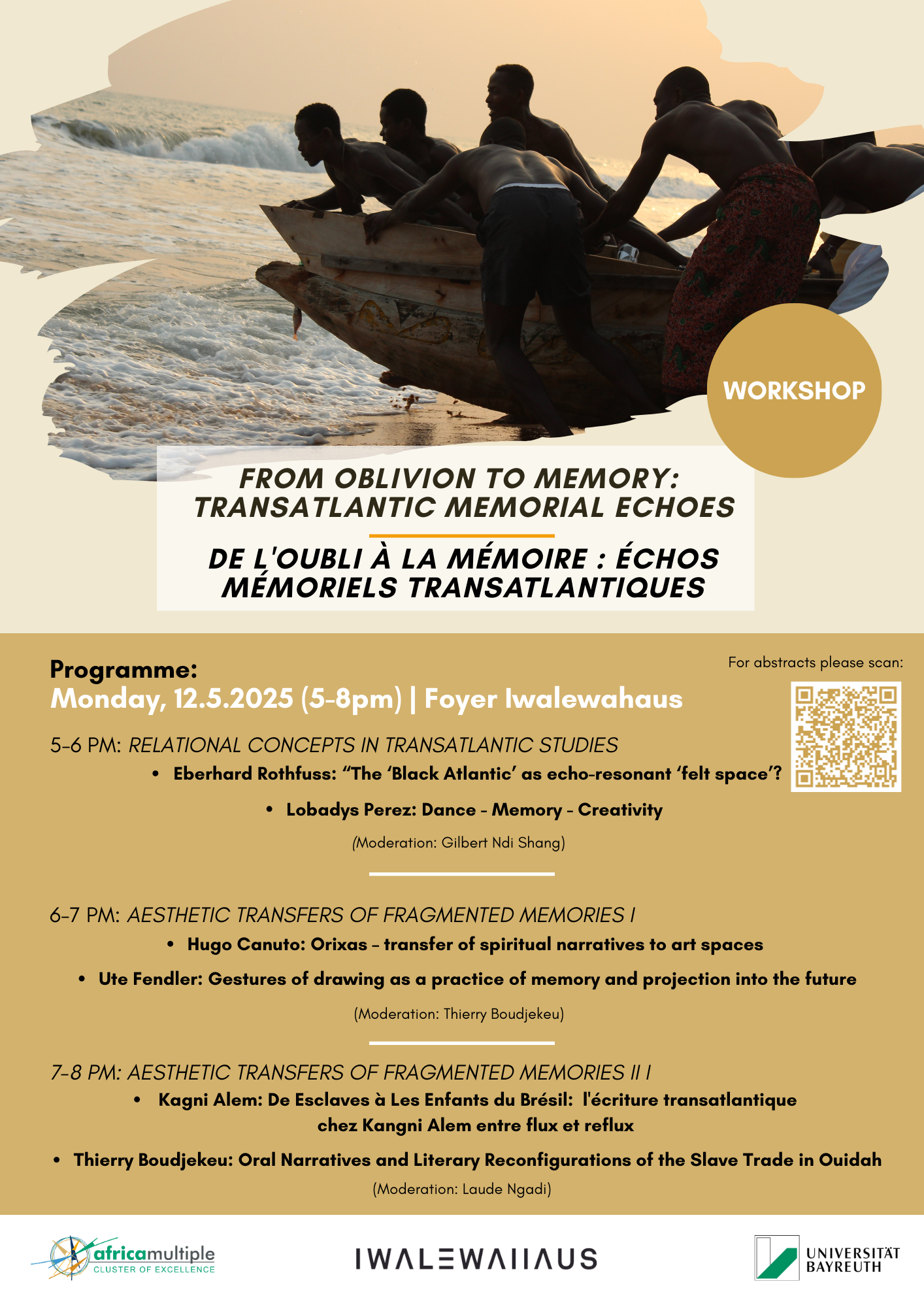Important Dates
Workshop: From Oblivion to Memory: Transatlantic Memorial Echoes
Monday, 12.5.2025,17-20h
Iwalewahaus (Foyer)
Workshop: From Oblivion to Memory: Transatlantic Memorial Echoes
De l'oubli à la mémoire : Échos mémoriels transatlantiques
Please register with Thierry Boudjekeu if you would like to attend!
Monday, 12.5.2025 (17-20h), Foyer Iwalewahaus
The presentations are linked with the exhibition that will be opened on the 15th of May at Iwalewahaus.
The tree of oblivion. Transatlantic memorial echoes
L’arbre de l’oubli. Échos mémoriels transatlantiques
Programme
- 17h00-18h00: Relational Concepts in Transatlantic Studies
Moderation: Gilbert Ndi Shang
Eberhard Rothfuss: “The ‘Black Atlantic’ as echo-resonant ‘felt space’?
Africa and Latin America share a dialectical relation of the “Black Atlantic”, which can be metaphorically described as “oceanic bridge”. Georg Simmel (1994) describes the bridge as entity which overcomes barriers, transcends limits, and creates continuity between what was once separate. The bridge is associated with the idea of communication, interaction, and movement between different spheres of life. Both continents are geographically separated by the Atlantic Ocean and at the same time they are related and connected by a shared colonial history of the transatlantic slave trade, which influences the costal life-worlds of various port-cities (and beyond) on both continents until today. The presentation draws on a “phenomenology of space” by offering a methodological approach of a “felt space and place” by Gernot Böhme (2017) to compare the “paramount reality” of “port-city life-worlds” in a Schutzian sense.
Lobadys Perez: Dance - Memory - Creativity
En Danza - Memoria - Creatividad, abordo las tensiones entre memoria y creatividad en la danza en relación a la manera en que la modernidad proyecta sobre África y el Caribe una identidad fija. A través de estas reflexiones, planteo cómo esta fuerzas pueden limitar nuestra capacidad creativa, lo cual constituye la base de mi práctica artística como coreógrafo y bailarín del Caribe colombiano, desde donde busco generar preguntas y movimientos que desafíen las narrativas impuestas.
In Dance - Memory - Creativity, I address the tensions between memory and creativity in dance in relation to the way modernity projects on Africa and the Caribbean a fixed identity. Through these reflections, I propose how these forces can limit our creative capacity, which is the basis of my artistic practice as a choreographer and dancer from the Colombian Caribbean, from where I seek to generate questions and movements that challenge the imposed narratives.
- 18h-19h: Aesthetic Transfers of fragmented memories I
Moderation: Thierry Boudjekeu
Hugo Canuto: Orixas – transfer of spiritual narratives to art spaces
This paper analyzes my work as an author within the universe of the
Tales of The Orishas (Contos dos Orixás) series, which adapts narratives from Afro-Brazilian oral traditions through the language of comic books.
From an authorial perspective, I explore the creative processes involved in translating the myths and legends present in Candomblé into the comics medium, and I discuss the political and aesthetic implications of representing orixás and Afro-centered characters in a field historically dominated by Western imaginaries.
Situated within the context of contemporary Brazilian art, the Tales of The Orishas universe is presented as a space of symbolic resistance and identity reinvention, where memory, belonging, and future imagination are interwoven through graphic storytelling.
Ute Fendler: Gestures of drawing as a practice of memory and projection into the future
Drawing (in all formats) seems to be the medium to free imagination from pre-given genres and patterns bringing up new combinations and genres. The explanation for a favorable setting of this medium in terms of creating new imaginaries, might lie in the specificity of the process, of the “gesture”, as explained by Vilém Flusser, who describes “gestures” as enigma. Combining these concepts with the reflections of comic book artists on the connection between gestures, thinking and imagining, I would like to analyze 2 examples – one from the artwork by Hugo Canuto and the one from artwork of the Lagos based Comic Republic, as both use Orixas as a reference for their imagined universes.
- 19h00- 20h – Aesthetic Transfers of fragmented memories II
Moderation: Laude Ngadi
Kagni Alem: De Esclaves à Les Enfants du Brésil: l'écriture transatlantique chez Kangni Alem entre flux et reflux
Il m’a fallu presque 15 ans pour mener à terme mon projet de trilogie sur la mémoire croisée Brésil/Golfe du Bénin. Le troisième roman de la trilogie, « Olympio » clôturera une réflexion sur le triptyque « territoire, survie et mutations », les piliers de ma réflexion sur la rencontre Europe-Afrique depuis le 15e siècle spécifiquement dans le territoire qui sera dénommé plus tard Togo, après avoir porté les noms Togoland et Togo français/Togo Britannique. Que l’on soit colonisateur ou colonisé, la survie comme instinct crée le besoin de territoire, réel ou fantasmé, sur une carte dont les dimensions ne sont pas à l’abri de la stabilité. Comment intégrer sur une carte possiblement fluctuante, les diverses mémoires ayant contribué à la création du territoire, à sa constitution idéologique ?
Thierry Boudjekeu: Oral Narratives and Literary Reconfigurations of the Slave Trade in Ouidah
This paper explores the interplay between oral testimonies and literary representations of the transatlantic slave trade, beginning with a discursive analysis of contemporary oral narratives collected in Ouidah. In this former slave port now transformed into heritage site official narratives coexist with competing memories, particularly those transmitted orally within the families of descendants of both enslaved people and slave traders. These oral accounts reveal a complex relationship to the past, shaped by silences, ritual practices, spiritual continuities, and intergenerational transmission.
Building upon a discourse analysis of the collected oral narratives, the paper moves into an intertextual and aesthetic analysis of literary works that reimagine the historical experience of the slave trade by weaving oral memory and ancestral knowledge into their narrative forms. The presentation will argue that the oral testimonies collected in Ouidah function as living archives. Through their emotional charge, narrative structures, and anchorage in familial genealogies, they subvert or reconfigure institutional representations of slavery.
PARTICIPANTS
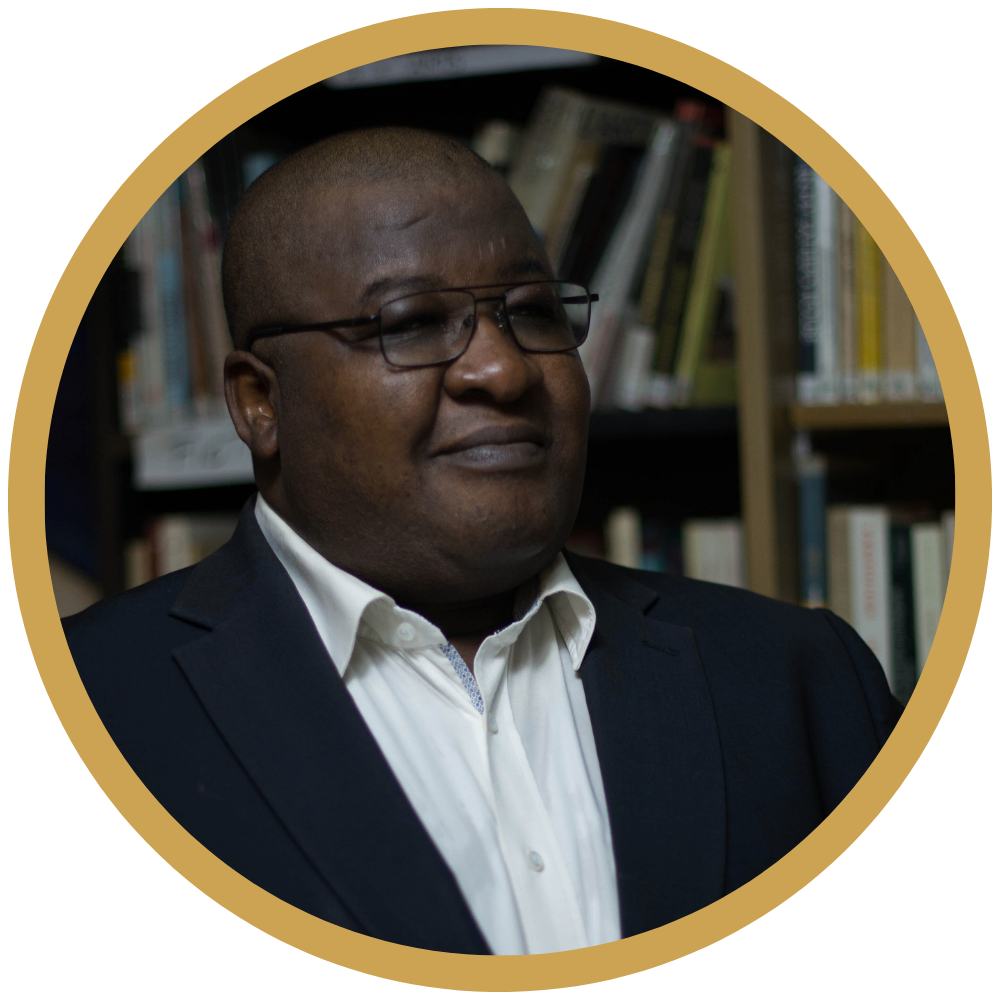
Kangni Alem
Né à Lomé en 1966, Kangni Alem est d’abord reconnu comme dramaturge, Prix Tchicaya U’Tamsi du Concours Théâtral Interafricain Radio France Internationale en 1990 pour sa pièce Chemins de Croix, nouvelliste et romancier, Grand Prix littéraire d’Afrique Noire en 2003 pour son roman Cola Cola Jazz (traduit en allemand).
Il est l’auteur de plusieurs fictions dont La gazelle s’agenouille pour pleurer, Canailles et charlatans, Un rêve d’Albatros, Esclaves (traduit en portugais du Brésil), La légende de l’assassin, Les enfants du Brésil… et de plusieurs pièces de théâtre comme Atterrissage, Apprentissage de la mémoire, La saga des rois, Nuit de cristal… et a signé plusieurs mises en scène pour des festivals internationaux.
Collectionneur d’art, curateur d’expositions passionné par les arts visuels et de la performance, Kangni Alem est professeur de littérature comparée et de pédagogie du théâtre à l’Université de Lomé, il dirige le programme de Master professionnel, mention Théâtre Éducation et travaille ces dernières années à la médiation entre littérature, arts plastiques et performance.
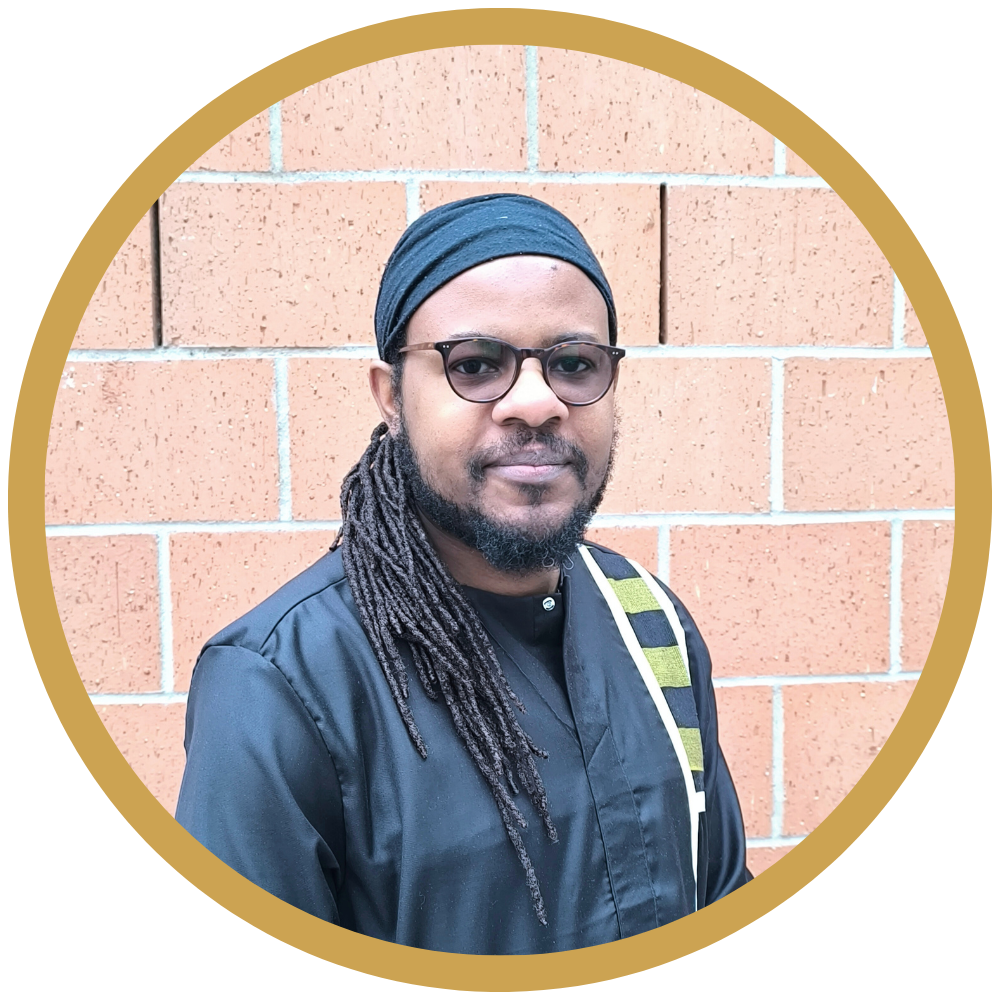
Thierry Boudjekeu
Thierry Boudjekeu is a research assistant with the Black Atlantic Revisited project and a Junior Fellow at the Bayreuth International Graduate School of African Studies (BIGSAS) at the University of Bayreuth. His doctoral project, titled "Writing the Slave Trade Trauma in Francophone Africa: A Study of Selected Novels," investigates the memory of the slave trade and slavery in the works of contemporary African authors such as Léonora Miano, Kangni Alem, and Wilfried N’Sondé. His research interests include postcolonial trauma, memory, and the history of the slave trade in Francophone Sub-Saharan writings, encompassing prose, oral narratives, and music. Among his recent publications are "Poetics and Ethics of Capture in Sub-Saharan Rewritings of the Slave Trade" in Mylène Danglades, Babou Diène, and Denis Assane Diouf (eds.): L’esclavage en mot/maux et en images (L’Harmattan, Paris, 2021), and "Slave Trade Trauma, Memory and History in Francophone African Literature" in Clarissa Vierke (ed.): On Worlds and Artworks.
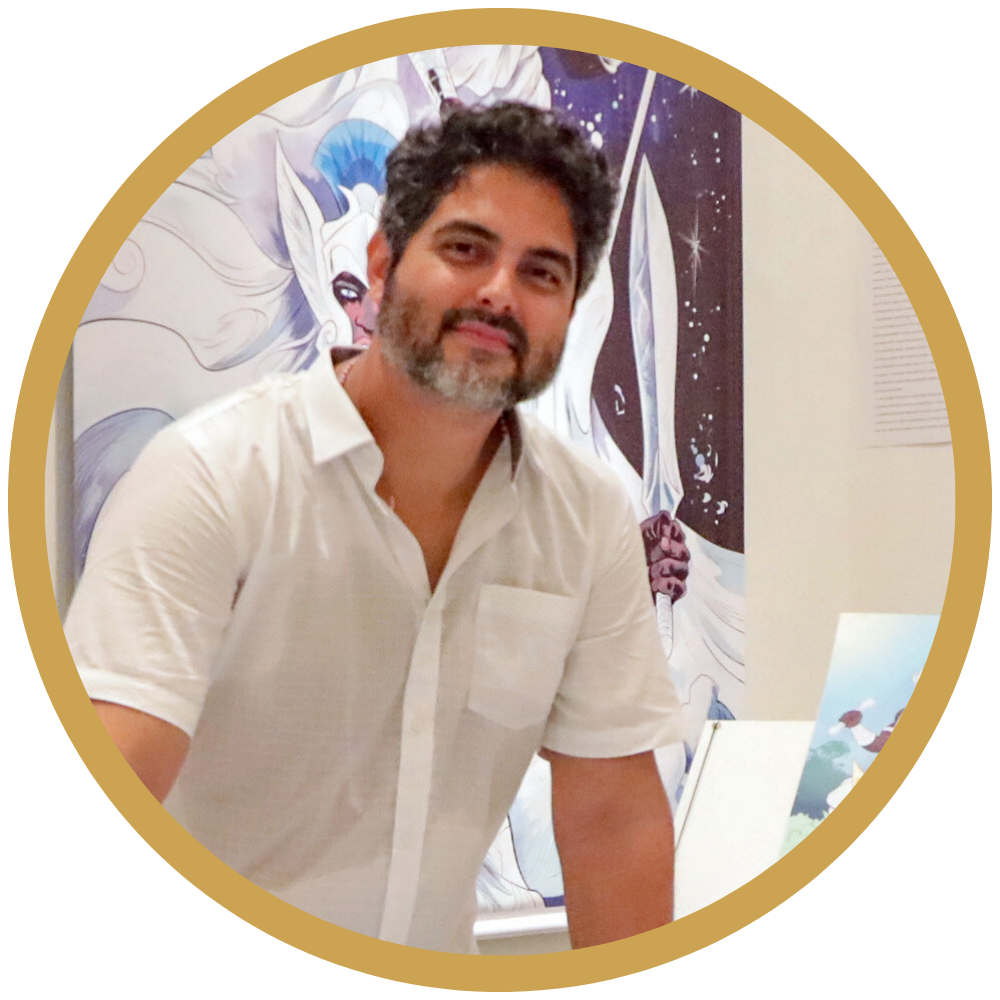
Hugo Canuto
Hugo Canuto is a screenwriter, illustrator and comic book author from Salvador da Bahia. Graduated in architecture, he seeks to express through his work the relationship between art, cultures and myths of Brazil, Africa and Latin America. He created the Graphic Novel series “Tales of the Orishas”, a saga inspired by the myths and legends of Yoruba and Afro-Brazilian culture, produced by four successful crowdfunding campaigns and with 20.000 copies sold of the comic books.
The work was nominated among the finalists for the 2020 Jabuti Award in the comics category (the most important book prize in Brazil) winner of the Angelo Agostini comic books prize.
In 2023, the English version was published by Abrams Books in the USA.

Ute Fendler
Ute Fendler holds the chair of Romance and Comparative Studies at the University of Bayreuth since 2006. Research Projects: “Black Atlantic Revisited” – African and South American UNESCO World Heritage Sites; “Multiple Artworks – Multiple Indian Ocean.” Recent publications: U. Fendler/E. Brugioni: “Islands, Theory and the Postcolonial Environment: Reading the Work of Khal Torabully.” In: Portuguese Studies Vol. 37, N°2, 2021, 165-177; “Hacia una ‘tercera-estética - Ecos polirrítmicos Sur-Sur en novelas antillanas e africanas.” In: I. Phaf-Rheinberger/K. Hagimoto (eds.): Geografías caleidoscópicas. América Latina y sus imaginarios intercontinentales. Frankfurt: Vervuert, 2022, 30-54; “Animating the Future: Storytelling and Super Heroes in Africa.” In: M. Bollig et al.: African Futures. Leiden: Brill, 2022, 237-250.
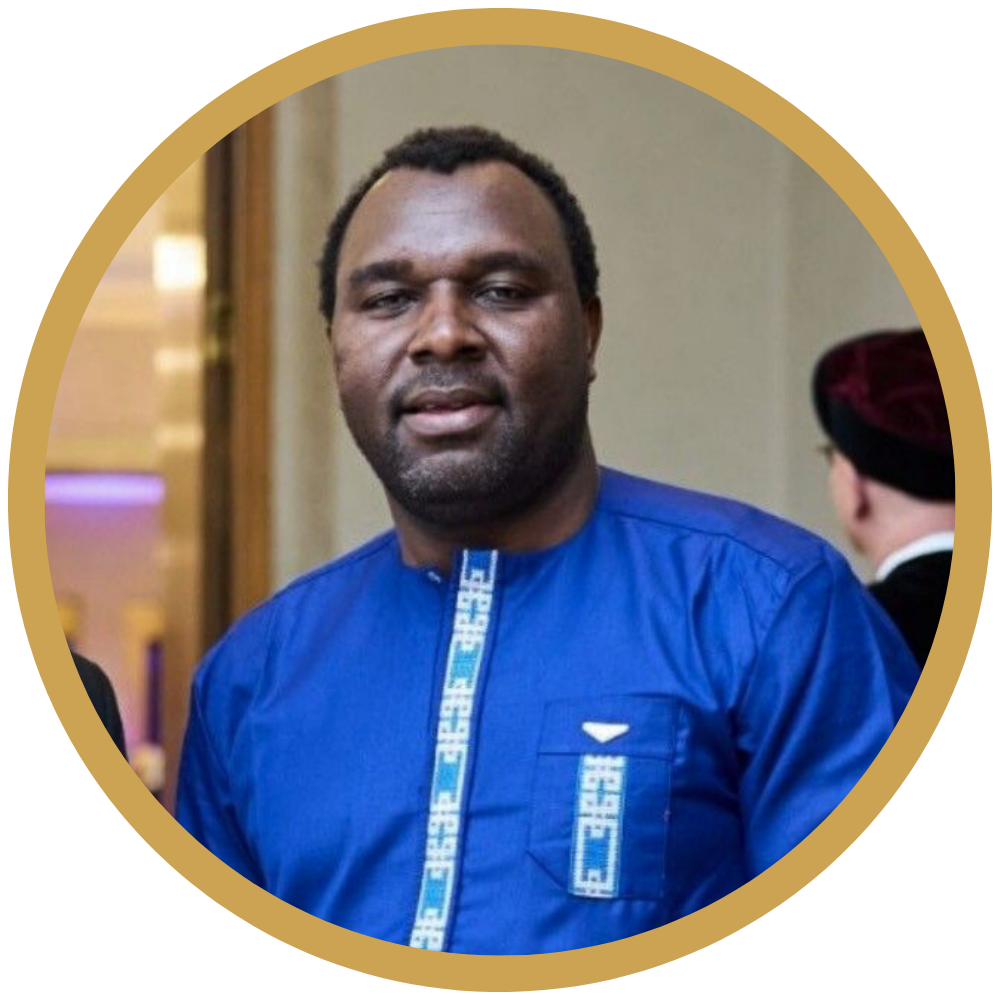
Gilbert Shang Ndi
Gilbert Shang Ndi is Heisenberg Professor of Comparative Literatures and Cultures, with focus on Africa and Latin America, at the university of Bayreuth, since March 2025. He is co-leader Project: Black Atlantic Revisited: African and South American UNESCO-World Heritage Sites and “Shadowed Spaces” of Performative Memory, Cluster of Excellence - Africa Multiple, University of Bayreuth. Gilbert is the author of Memories of Violence in Peru and the Congo (2022) and has co-edited Of Worlds and Artworks - A Relational View on Artistic Practices from Africa and the Diaspora(2024). His articles have appeared in peer-reviewed journals such as English in Africa, French Studies in Southern Africa, and Comparative Literature Studies. He is author of two creative works: Letter from America (2019) and The Radio, and Other Stories (2021).
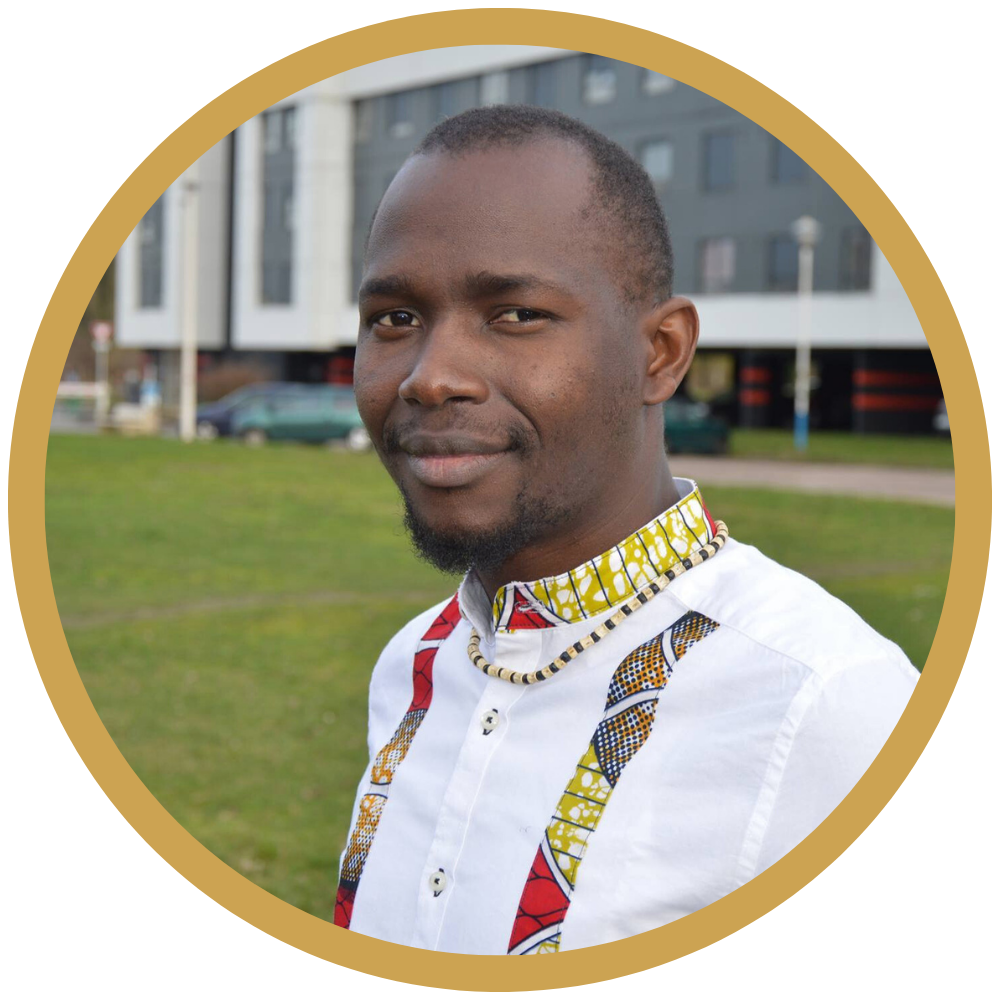
Laude Ngadi Maïssa
Laude Ngadi Maïssa is Assistant Professor at the University of Bayreuth (2024-2025). Doctor of the University of Lorraine (2018), he was a postdoctoral fellow at the University of KwaZulu-Natal (2019-2022) and winner of the Swiss Confederation Postdoctoral Excellence Fellowship at the University of Lausanne (2022-2023). His research focuses on questions relating to the literary and artistic globality of contemporary French-language manifesto and viatic productions. He has edited a special issue of the journal Alternative francophone (vol.3, n°2, 2023) on French-language world anthologies, and co-edited a special issue of the journal French Studies in Southern Africa (51.1, 2021) dedicated to manifestos from French-speaking Africa. He is the author of a monograph, L’Œuvre-monde d’Olivier Rolin (2022), and some twenty articles.
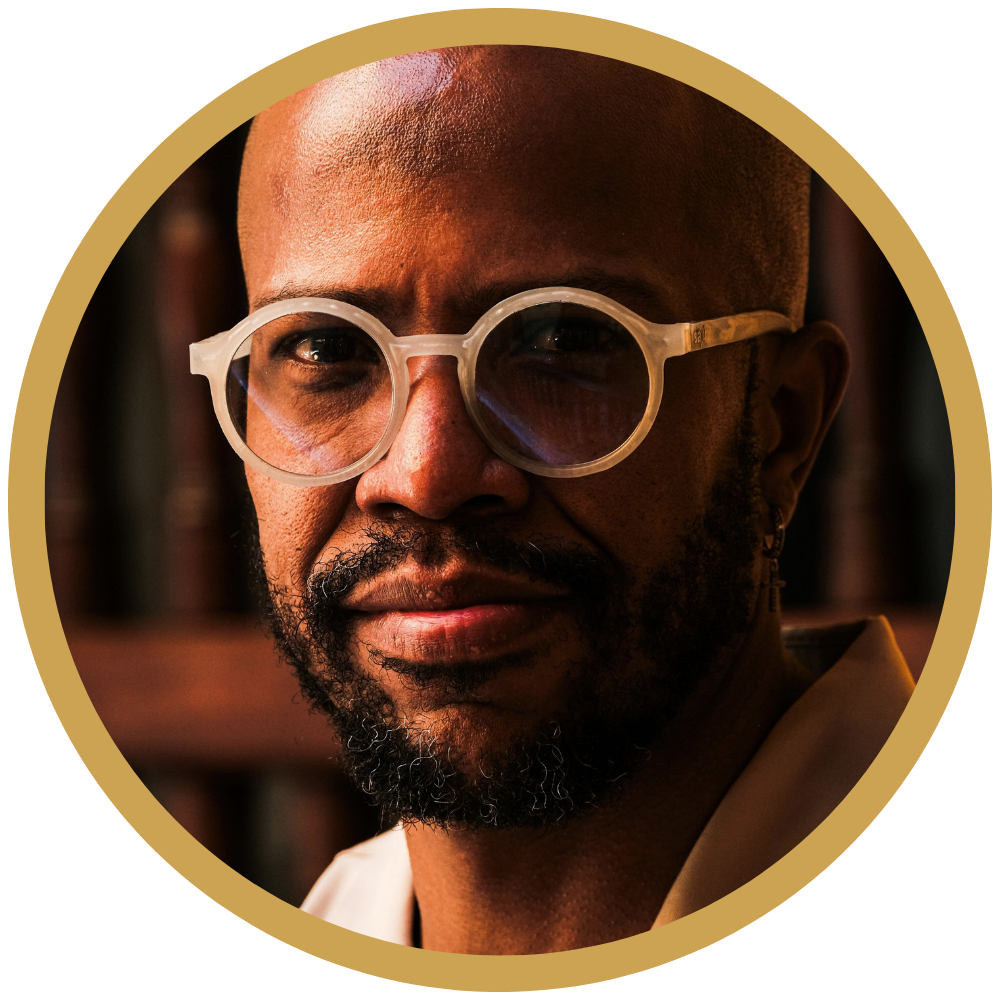
Lobadys Perez
Bailarín y coreógrafo que a partir de los 90 integra el movimiento Hip-Hop en Cartagena de India, posteriormente, en 1997, entra en el “Colegio del Cuerpo”, Compañía internacional de Danza Contemporánea dirigida por los reconocidos coreógrafos Álvaro Restrepo y Marie France Deliuvin. En 2018 recibe el título de la Licenciado en Educación Básica de la Universidad de Antioquia y tiene estudios de Maestría en Desarrollo y Cultura de la Universidad Tecnológica de Bolívar. En 2009 funda el núcleo profesional Compañía Periferia, poniendo en dialogo su procedencia artística: el Hip-Hop, con su formación como bailarín en Danza Contemporánea, en la búsqueda de una gestual propia.
Dentro de sus trabajos se destacan obras como: "EIDON" presentada en diferentes escenarios alrededor del mundo ( Japón, Israel, Italia, Panamá, Colombia, Perú), “MELANCOLICO”, presentada en el 13 Salón Nacional de Artistas 2009, "Memorial de Agravios", invitación especial Salón Nacional De Artistas 2011, "Eternidad y Un Día" presentada en el marco de la VI Cumbre de las Américas 2012 en Cartagena Colombia, “Insubordinación” Beca de investigación/creación del Ministerio de Cultura 2012. Beca de Circulación Internacional Ministerio de cultura 2013, “FUGA” Beca de Investigación creación para coreógrafos de largo trayectoria Ministerio de Cultura 2014, Disección del Mito, Festival internacional de Cine de Cartagena 2015. Inmóvil 2017. En 2019 crea JOB beca de la Bienal de danza de Cali, Deporte Nacional, obra encargada del Teatro Jorge Eliecer Gaitán 2019. Polifonía Estere obra encargada por la Corporación Universitaria CENDA 2021; Liturgia de Cristal obra encargada por el teatro Julio Mario Santo Domingo 2022. A esto se suman otras participaciones en Festivales internacionales en Bolivia, Perú, Brasil, Panamá, Jamaica, Japón, Corea, Vietnam, India, Polonia, Lituania y Colombia.
Dancer and choreographer who from the 90's integrates the Hip-Hop movement in Cartagena de India, later, in 1997, enters the “Colegio del Cuerpo”, international Contemporary Dance Company directed by renowned choreographers Alvaro Restrepo and Marie France Deliuvin. In 2018 she receives the degree of Bachelor in Basic Education from the University of Antioquia and has Master's studies in Development and Culture from the Technological University of Bolivar. In 2009 he founded the professional core Periphery Company, putting in dialogue his artistic background: Hip-Hop, with his training as a dancer in Contemporary Dance, in the search for a gestural own.
Among his works are: “EIDON” presented in different stages around the world (Japan, Israel, Italy, Panama, Colombia, Peru), ‘MELANCOLICO’, presented at the 13th National Artists Hall 2009, “Memorial de Agravios”, special invitation National Artists Hall 2011, “Eternity and a Day” presented as part of the VI Summit of the Americas 2012 in Cartagena Colombia, “Insubordination” Research / Creation Grant from the Ministry of Culture 2012. International Circulation Grant Ministry of Culture 2013, “FUGA” Research/creation grant for long career choreographers Ministry of Culture 2014, Disección del Mito, Cartagena International Film Festival 2015. Immobile 2017. In 2019 creates JOB scholarship of the Biennial of dance of Cali, Deporte Nacional, work in the “Inmóvil”.

Eberhard Rothfuß
Eberhard Rothfuß is a Professor of Social and Population Geography at the University of Bayreuth. He received his doctorate in 2003 at the Julius‐Maximilians‐Universität Würzburg and qualified as a post‐doctoral fellow at the University of Passau until 2010. During the period 2011–2013, he represented the chair of social geography and geographical development research at the University of Bonn.
His main areas of research focus regionally on Sub-Sahara Africa (Namibia & Mozambique), South America (Brazil & Colombia) and South Germany. Thematically he works on Urban Inequalities, Collective Governance, Afro-Brazilian Identity, Intercultural Hermeneutics, Critical Theory, Geographies of the Everyday-life and Spatial Qualitative Social Research.


